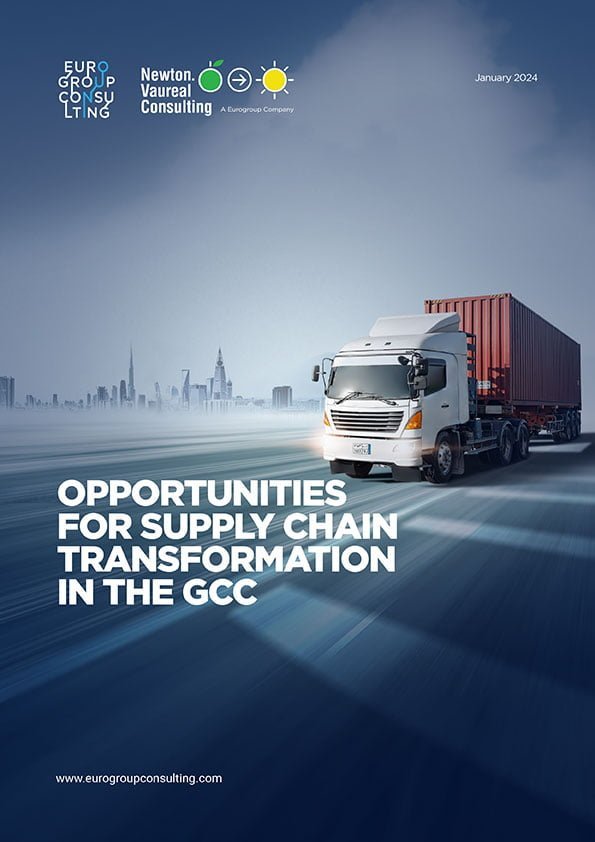Opportunities for Supply Chain Transformation in the GCC
The Gulf Cooperation Council (GCC) is entering a new phase of industrial and logistics transformation. As the region accelerates economic diversification, supply chains are becoming central to national competitiveness, industrial growth, and long-term sustainability.
The joint white paper from Eurogroup Consulting and Newton Vaureal examines how GCC countries are repositioning themselves as global logistics and manufacturing hubs. The report highlights how supply chain transformation is not only an operational priority but also a strategic lever for economic reform.
Across the region, governments are investing heavily in infrastructure, regulatory modernization, and industrial ecosystems. Saudi Arabia’s National Industrial and Logistics Development Program (NIDLP), the expansion of Jebel Ali Port in the UAE, and Bahrain’s development as a sea-air logistics hub reflect the GCC’s ambition to integrate more deeply into global trade networks.
Policy reforms are reinforcing this momentum. The UAE’s foreign ownership liberalization, the expansion of special economic zones in Saudi Arabia, and an optimized common external tariff framework are creating a more competitive business environment. By 2030, Saudi Arabia aims to rank among the top 10 globally in the Logistics Performance Index — a target requiring improvements in customs efficiency, trade facilitation, and digitalization.
The white paper identifies five priority pillars for supply chain transformation in the GCC:
• Modernizing national logistics master plans
• Strengthening organizational and operational maturity
• Embedding sustainability and decarbonization strategies
• Transforming urban logistics for smart cities
• Achieving operational excellence through technology
Sustainability is emerging as a critical differentiator. With carbon neutrality targets set for 2060 and major renewable energy investments underway, GCC supply chains are shifting toward greener warehouses, alternative fuel transport, rail integration, and low-carbon construction methods.
Urbanization and e-commerce growth are also reshaping last-mile delivery. Projects such as NEOM and Oxagon in Saudi Arabia are redefining smart city logistics, while digital addressing systems and robotics are improving delivery efficiency.
For business leaders, the message is clear: supply chain transformation in the GCC is not incremental — it is structural. Companies that align with national strategies, invest in operational excellence, and embed sustainability into logistics models will be best positioned to capture long-term growth.
Download the full report to explore strategic insights and actionable recommendations for GCC supply chain transformation.
